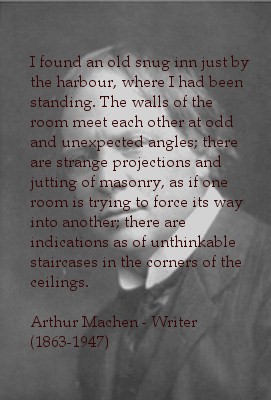By RICHARD LOCKER
The Whaler Fleet is a sentimental poem written by the Victorian gentleman Arthur J Munby. It recounts a tragic incident which occurs during a whaling voyage to Greenland and the frozen north, the story is told from the perspective of a loved one awaiting the return of the fleet.
THE WHALER FLEET
Full merrily sail’d our whaler fleet
When the wind blew out to sea;
Any many a one came forth to greet
Each good ship’s company.
For there was the Dove and the Good Intent
(How the wind blew out to sea!)
And the Polly o’ Sleights with her bran-new sails;
But the Mary Jane for me!
Oh, Captain Thwaites of the Mary Jane,
When the wind blew out to sea,
Full many a time his ship had sailed,
Full many a time had he.
He has Jack of Grosmont and Tom o’ the Staith
(How the wind blew out to sea!)
And Handsome Jim from Hayburn Wyke;
But ‘twas Robin Hood Will for me.
My Willy he kiss’d me before them all,
When the wind blew out to sea;
My Willy he stood the last on deck
A-waving a cap to me.
So off they sail’d out over the main,
While the wind blew out to sea;
Till the ice was all under their beamed bows
And the ice drove under their ice.
The months they went and the months they came,
And the wind blew out to sea;
Any many a time in the stormy nights
My mammy she wept with me.
But when the harvest moon came round,
And the wind blew in from the sea,
‘Twas merrily came our whaler fleet
All home from the north country.
The folk they call’d and the folk they ran,
And the wind blew in from the sea;
From the tick of the town to the lighthouse tower’
‘Twas throng as throng could be.
I saw them atop of the old church stairs,
When the wind blew in from the sea;
And the waves danced under their beamed bows,
And the foam flew under their lee.
I saw them at foot of the old church stairs,
When the wind blew in from the sea;
And the foremost ship of our whaler fleet
Was rounding the lighthouse quay.
Oh there’s the Dove and the Good Intent,
(Still the wind blew in from the sea),
And the red red sails of the Polly o’ Sleights-
Her men as plain to see.
Now every each hath pass’d the bar,
And the wind blew in from the sea;
And every each lies in harbour lies,
Right up against the quay.
But where, oh where, is the Mary Jane,
Now the wind blew in from the sea?
There’s many hath clipt his lass,
And when doth my lad clip me?
“Oh tell me where is the Mary Jane,
For the wind blew in from the sea?”
“The Mary Jane went down by her head
With all her company!”
And take me home, for I care not now
If the wind blows in from the sea;
My Willy he lies in the deeps of the dead,
But his heart lives on in me.
Arthur J Munby (1828-1910)
In them he describes how he would frequent the cities poor urban districts, where he could freely converse with these women, asking them about their lives, where they worked as well as the conditions they worked in. He would often make sketches of the women as well as writing detailed descriptions of their clothing and dialects. It is now considered that Munby may have had a form of mysophilia - a fetish for soiled and dirty materials or people - but he would vehemently deny that his ‘Hobby’ had any prurient elements.
Hannah Cullwick in various guises, including that of a housemaid, a lady and a male negro slave.
In 1854 Munby began an affair with a Shropshire born maid-of-all-work called Hannah Cullwick. The peculiarities of this relationship saw Munby take on the roll of master whilst Cullwick became his willing slave, they also involved other forms of fetishism including age play and infantilism. Even after their secret marriage in 1873 the relationship remained the same, apparently on Hannah’s behest. But by 1877 the couple had grown apart and Cullwick left Munby to return to her previous profession as a maid. It is thought Munby continued to visit Hannah right up until her death in 1909.
Although there is no evidence that Munby ever visited Whitby, the poem appears to suggest that he knew the town well, with it’s detailed description of the harbour and a familiarity with the names of the surrounding villages (Munby himself was born only forty miles away at Clifton in York). Plus the fact that Whitby at the time was one of England’s largest whaling ports and an industrious hive of activity, means the he would probably have found the town a very enticing destination.











No comments:
Post a Comment